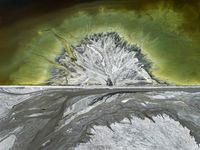
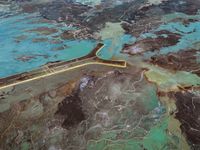
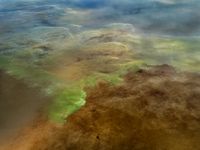
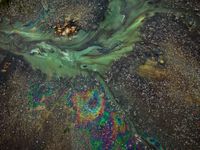
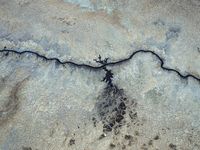
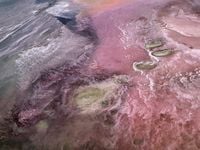

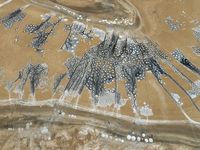
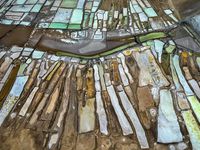
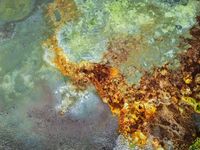
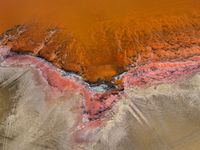
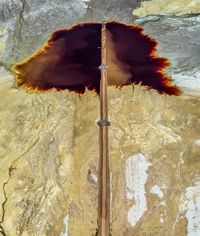
Since the early 1980s, Edward Burtynsky has been photographing industrial landscapes across the globe, documenting in remarkable detail the human imprint on the planet through terraforming, extraction, urbanisation and deforestation. For African Studies, premiering in New York simultaneously at Sundaram Tagore Gallery and Howard Greenberg Gallery, he focused on Sub-Saharan Africa, traveling to Kenya, Nigeria, Ethiopia, Ghana, Senegal, South Africa, Botswana, Namibia, Madagascar and Tanzania between 2015 and 2020.
Burtynsky's interest in Africa was sparked 20 years ago while he was working on his landmark 2004 photographic project China, which explores the country's rapid globalisation and the construction of the Three Gorges Dam. The series, and subsequent award-winning documentary film by Jennifer Baichwal, Manufactured Landscapes (2006), chronicle China's transformation into the world's leading manufacturer and depository for its waste. Burtynsky witnessed firsthand the immense environmental—and by extension, human—cost of development, and he predicted Africa would be the next, and perhaps the last, region to undergo major industrial expansion.
Presented in large-format photographs, African Studies conveys the fragility of the natural world, bringing together images of lush, undisturbed landscapes and environments irretrievably altered by industry. The series was largely photographed from aerial perspectives, a viewpoint that distills the continent's diverse topography into graphic patterns and gradients of sumptuous color. The resulting effect seemingly transforms the marks of human infrastructure into painterly abstract compositions. In these images, as in all his work, Burtynsky skillfully integrates critical reporting with sublime visual aesthetics creating a harmonious balance between content and form.
With this project I hope to continue raising awareness about the cost of growing our civilisation without the necessary consideration for sustainable industrial practices and the dire need for implementing globally organised governmental initiatives and binding international legislations in order to protect present and future generations from what stands to be forever lost.
On the occasion of the gallery openings of Edward Burtynsky's African Studies, Burtynsky and his gallerists have committed 100% of the earnings from the first 39" x 52" print sold at each show — equalling CAD $100,000.00 — to LagosPhoto. They will work with LagosPhoto to establish a new program within the Festival dedicated to emerging and mid-career African artists who are focussing their lens on subjects of globalism, and the environmental, cultural and social impacts of the climate crisis on the Global South.
African Studies is the subject of a 208-page monograph of the same title newly published by Steidl (2023).
Press release courtesy Sundaram Tagore Gallery.
542 West 26th Street
New York, NY 10001
United States
www.sundaramtagore.com
+1 212 677 4520
+1 212 677 4521 (Fax)
Tuesday – Saturday
10am – 6pm